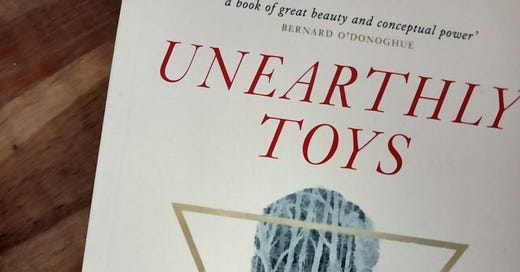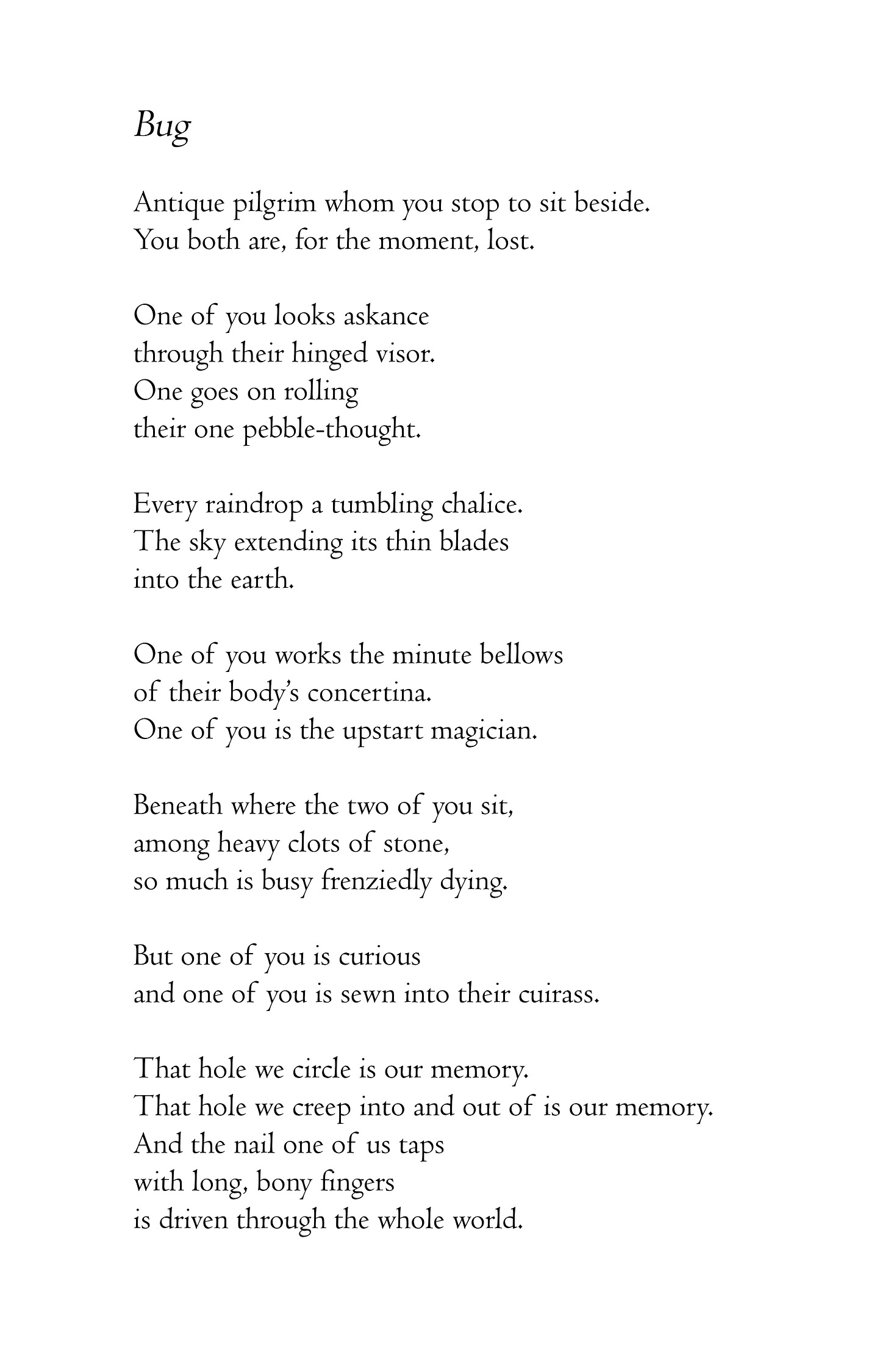Suffering / Bug / Unearthly Toys
DIARY
It’s possible to be thrilled and exhilarated at the same time as appalled and frightened – after all, this is the basis on which horror fiction operates. So one thing that’s unsettling about the current moment is the fact that, on one level, people are enjoying the war on our doorstep. There’s an eagerness with which news is disseminated, a bit of self-congratulatory pomp in the various commentaries, a creeping ease with which some have a crack at inflammatory rhetoric.
In the midst of this comes a very readable and splendidly produced online essay on Auden’s ‘Musée des Beaux Arts’ by Elisa Gabbert, and an irritable (but sometimes well-argued) rejoinder to that article by Lee Siegel. The difference between their two positions (certainly, from Siegel’s point of view) is whether, by drawing attention to the proximity of human suffering to human indifference, Auden meant to challenge and discomfort us or merely to show us something of what it is to be human.
It’s interesting to think of this poem, and the painting it describes, in relation to how social media has changed us. If being human means needing to be able to look away, needing to practice indifference to the extremes of suffering that are all about us, then technological interconnectivity forces us to adopt radical new strategies, since Nelsonian blindness (not looking, not knowing) is no longer possible. One of those strategies is to tell ourselves stories that frame certain kinds of suffering as justified, or a sad inevitability – stories which obscure culpability or erase the sufferers altogether.
I mean – yes, this has always been used as a strategy. But we see even more of it today, I think, and it is more flagrant, more naked. We see a mounting fervour for maintaining these stories as they buckle and tear under constant bombardment from reality. Those who are online, and who cannot find a way to live with endless uncertainty, who struggle to adjust and recalibrate their moral circuitry on an ongoing basis, become increasingly prone to cultism. They cannot look away, so they must aggressively redefine what it is they’re looking at.
The invasion of Ukraine has brought some measure of temporary relief, I think, to anyone vexed by this condition. It has produced a moment of clarity: for once, there is unity of feeling, very little messiness in who deserves our sympathy and who our condemnation. You can be crude, and clumsy, and thoughtless in the way you express yourself, and not run into too much trouble. But then again, you can already feel that moment ebbing away.
I think a lot about what social media has done to us, and overall I think the scales tip in a positive direction, though there’s a lot we still have to get our heads round, and I don’t know that at the end (if we reach the end) we will be quite the same kind of humans as Auden describes.
POEMS
Since I’ve just had ‘Cat’ published in a very handsome transatlantic journal, I decided to revise ‘Woodlouse’, the first in the same mini-sequence to find its way into the light. It’s now called ‘Bug’, I’ve added it to the poems on rotation on my website, and it goes like this:
READING
I’ve resumed making my way through Ned Denny’s Unearthly Toys, which is a book of furious formal jousting and rampant cover versions. There’s a ghazal called ‘Gazelle’, terza rima, a poem three pages long where every line begins ‘At the edge of the woods,’ and a version of Li Po failing to find his sensei in the mountains. I’ve also managed to write up a couple of book reviews, but haven’t really cracked this one yet. It’s very squirmy – doesn’t like to be pinned down.




